
Director, Student Services/Bidwell Training Center
USA

by

Director, Student Services/Bidwell Training Center
USA
by

Buddhist Monk
USA
by
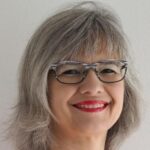
Mindfulness Teacher & Program Manager, SAP Global Mindfulness Practice
Germany
by
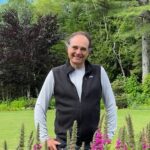
Exhibit Developer, Author
USA
by
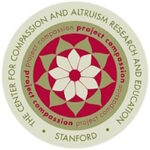
Director, Student Accessibility and Case Management
Canada
by

Consultant in Emergency Medicine
Compassionate Leadership for Foundation Doctors
by

Physical Therapist-Clinician, Educator
USA
by

Clinical Psychologist
USA
by
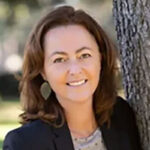
Founder, Be Rooted & Co-founder cooperative Compassionate Care and Mindful Medicine the Netherlands & Global Online
Netherlands
"The ACT Training prepared me to become a force for embodying compassion and applying it in real-world situations."
Starting March 15, 2020, the ‘Corona Compassion Community Netherlands’ offered daily meditations for Health Care professionals as a response to the pressures of COVID-19 on our HC system. Our team of experienced Compassion and Mindfulness Professionals offers a format of 4 core elements:
• A routine 7 days a week, giving support when needed
• Focus on guided meditations, not on explaining and teaching
• At the end of the meditations we considered how the meditation of that evening, could support professionals in their work environment on the following day
• 5 styles offered variation and choice
We continued in this format for 74 days with a total of 3,500 participants. The average number of 50 participants per night and a maximum of 100 persons.
“Because a daily moment of calm is good for the body. The stronger I am, the more I can support my team through this crisis.” (Medical technologist)
Our most valuable feedback: During the polls taken, over 80% of people were feeling peaceful and inner calm after the meditations and an average of approximately 75% found that these daily meditations had a positive effect on their professional practice and day-to-day. Most people were satisfied and indicated that the chosen format worked for them. Some people indicated that more silence during the guided meditations would be appreciated. People have let us know they would appreciate a continuation of these daily meditations and we are now continuing as the International Compassion Community.
“The ACT Training has prepared me to become a motivating force for embodying compassion and applying it in real-world situations -in my own way. ACT has given me a theoretical, as well as a practical framework of principles, resources, and tools that allow me to feel confident, empowered, and ready to ACT as a Global Ambassador of Applied Compassion.”
Because of the intensity and richness of the program, I now find that compassion is an integral part of all my work and personal life. I am able to find resilience in my inner world and try to find the compassionate way in any situation. It has made me more Response-Able in a complete way and I am super grateful for my teachers and mentor.
by

Painter and Art Workshop Facilitator, Nelfa
Netherlands
"ACT helped me become an Ambassador of Applied Compassion by reminding and teaching me the necessity of action."
In ACT with the collaboration with my mentor and capstone team, I designed, developed 3, 3-hour workshops for people with an interest in the notion of “art as a process” that were delivered over 3 weeks to 18 participants. I believe that art holds the keys to accessing compassion. By approaching art from a place of mindfulness, we are approaching ourselves and discovering a space where the artwork, the artist’s suffering and our suffering cohabit. Engaging with art requires vulnerability, awareness, openness to beauty. The importance of the project lies in redefining how we engage with art and inquiring about what would happen if we engaged with one another the way we engaged with an artwork?
My hope for these workshops is to create a space for the participants to stand in front of themselves and others. The skills activated when seeing/feeling art are the same ones that are present when meeting the other (our self) in their suffering. Through the survey filled out after the workshop, the participants reported that the experience allowed them to deepen compassion for others and themselves. The stories they created and shared during the workshop were very vulnerable, and it was beautiful seeing the shared experience stretched by the willingness of one human to listen to another human.
Building my ACA Capstone Project helped me be an Ambassador of Applied Compassion by teaching be 3 main lessons. (1) On self-compassion: the process “forced” me into a conversation with my inner critic, and the humility to acknowledge my inner strengths and shortcomings was the only way through. (2) On not knowing: I am left with more questions than answers, on awareness, on how we deepen compassion, and on how to be firm. (3) On the necessity for action: the capstone project concretizes our role as a representative of compassion and teaches us what it means to lead by example.
Participating in the Applied Compassion Training (ACT) shifted the way I approach my interactions with myself and others. I now try to approach all the micro-compassion opportunities with a thought Robert expressed early in the program “Resisting suffering only adds more suffering”. I ask myself more questions. I meet the presence of my inner critic with compassion. I pay attention to my breathing more often. I say no, not now. I also say yes.
by

Clinical Assistant Professor/Assistant Program Director, EM Residency Program, Stanford School of Medicine
USA
"I've learned to embody compassion and better care for my patients, my colleagues and myself."
Burnout is common amongst physicians including resident physicians. Many works in medical education on physician wellness has been focused on the culture of wellness and systems problem addressed in didactic sessions. The Stanford Model for Professional Fulfillment highlights three areas: the culture of wellness, efficiency in practice, and personal resilience. This multi-center study will introduce a meditation intervention and study its effects on burnout, resilience, and professional fulfillment in first-year EM residents.
This is an ongoing, multi-center study on the efficacy and feasibility of developing a mindfulness-based daily practice in residency and its effects on one’s self-compassion, resilience, and professional fulfillment. We are using the Stanford WellMD Professional Fulfillment Survey as well as the Connor-Davidson Resilience Scale. Using any free meditation app (Insight timer, Calm, Headspace, etc), interns at 3 institutions in the US and Canada did at least 5-minute daily guided meditation practice for 14 days. We had their baseline professional fulfillment score and resilience score and will measure impact in 6 months and 12 months. Our goal is to develop a proactive skill-building training for emergency physicians.
My ACT Capstone is more of an application of what I learned at ACA, in addition to the lectures I’ve developed and given across the country and Canada. My focus is on the development of self-compassion in preventing burnout in medicine. ACA has allowed me to understand barriers in practicing self-compassion, and designing interventions that may open up to the practice of self-compassion in medicine.
No words can express the impact of ACA on how I’ve been able to better care for my patients, my trainees, my colleagues, and myself. I have learned to embody compassion in my practice and my daily life. I’m truly grateful to the ACA leadership, especially to my group mentor, and my capstone team.
by

Head of Strategy and Operations, Banana Republic
USA
"I became the change I wanted to see in the world."
The goal of my work was to shift perspectives of what cultivating compassion looks like in the corporate world. I developed and facilitated a workshop titled The Inside Power: Cultivating Self-Compassion for 20 people inside of Gap Inc. The workshop focused on 1) an overview of why leaders with EQ are needed in the new business landscape, 2) direct experience exercises, building a muscle of awareness of the present moment, 3) embodiment through breath, and then 4) establishing a 30-day daily practice of self-compassion. I measured the participant’s awareness, practice, and overall well-being before and then 30-days after the workshop. The results will be compiled the first week of September. After the workshop, I was invited to give a talk on compassion to all of Gap Inc!
Lastly, when I told a mentor about my work, she invited me to write an article for a professional newsletter she sends out. I wrote about the importance of practicing self-compassion and rejuvenation to be able to be an effective corporate leader.
I received wonderful feedback from many of the participants. One said “I can’t wait to see what your work blooms into, its going to be industry (and beyond) shifting…this work is seismic! I will receive the official data on the 30-day practice soon.
My capstone project provided the discipline and support I needed to bring the workshop I designed and facilitated for my colleagues at Gap Inc. to life.
Participating in the ACT is truly a story of ‘becoming.’ The focus on direct experience and building a muscle of compassion was the catalyst for me to become the change I want to see in the world. Practicing that, getting feedback, and teaching others through my capstone project continues to expand what’s possible in my mind.
by
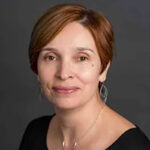
Principal Clinical Imaging Scientist, Genentech
Colombia
"The ACT faculty, training, teachings, the wonderful projects, and my cohort were the push I needed to spread compassion."
My Applied Compassion Capstone Project was designing, developing, and delivering a program for volunteers in Medellin, Colombia who are serving a community that is living in extreme poverty by providing education, encouraging school attendance, balanced nutrition, and community activities. In my project, I developed and delivered a 5-week mindfulness introduction course to 16 people followed by a 13-week week compassion cultivation course to 20 people. Then I developed and led a 10-week training for 8 volunteers wanting to become mindfulness facilitators. We met online, 2h/week. And I then supported the volunteers in creating the mindfulness program for kids and adults.
Participants report a more consistent mindfulness practice, on the cushion and in daily life. Also, being able to manage stressful situations with more compassion for self and others and how cultivating common humanity has enabled them to be more compassionate. Personal inquiry about what compassion is and what is not has been supportive: Recognizing that taking care of oneself and actively engaging in activities supporting their own wellbeing while supporting their community is important to avoid burnout. They’ve expressed their work during the pandemic has impacted positively their community and has provided them with great satisfaction and purpose.
Designing and developing my Capstone Project and its classes and training required me to reflect deeply on the meaning of living compassion, challenging my beliefs and mental habits. Teaching became my teacher, my students became my teachers. Having to leave my comfort zone more often than usual, widened it. Uncovering my blind spots taught me humility and deep compassion. Overcoming my fears of doing a ‘horrible’ job and the impostor syndrome, taught me kindness and strengthened my sense of common humanity. This experience reinforced my compassion, supported me in finding a stronger sense of purpose, and opened many possibilities to serve from the heart.
“We must be willing to let go of the life we planned so as to have the life that is waiting for us,” Joseph Campbell. That’s pretty much what happened these last months. The ACT faculty teachings, the wonderful projects and classmates, and being witness to the good they’re bringing into the world was the ‘push’ I needed to fully commit to spreading compassion. I have many ideas and projects, I’ll keep learning and sharing with as many as possible the resources to grow their inner kindness and compassion. In ACT, I uncovered my compassionate courage and am ready to share it!
by
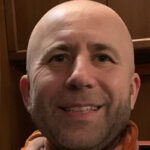
Dentist/Oral Surgeon
United Kingdom
The project had the aim to bring compassion in the dental environment which made a big difference for patients and my colleagues.